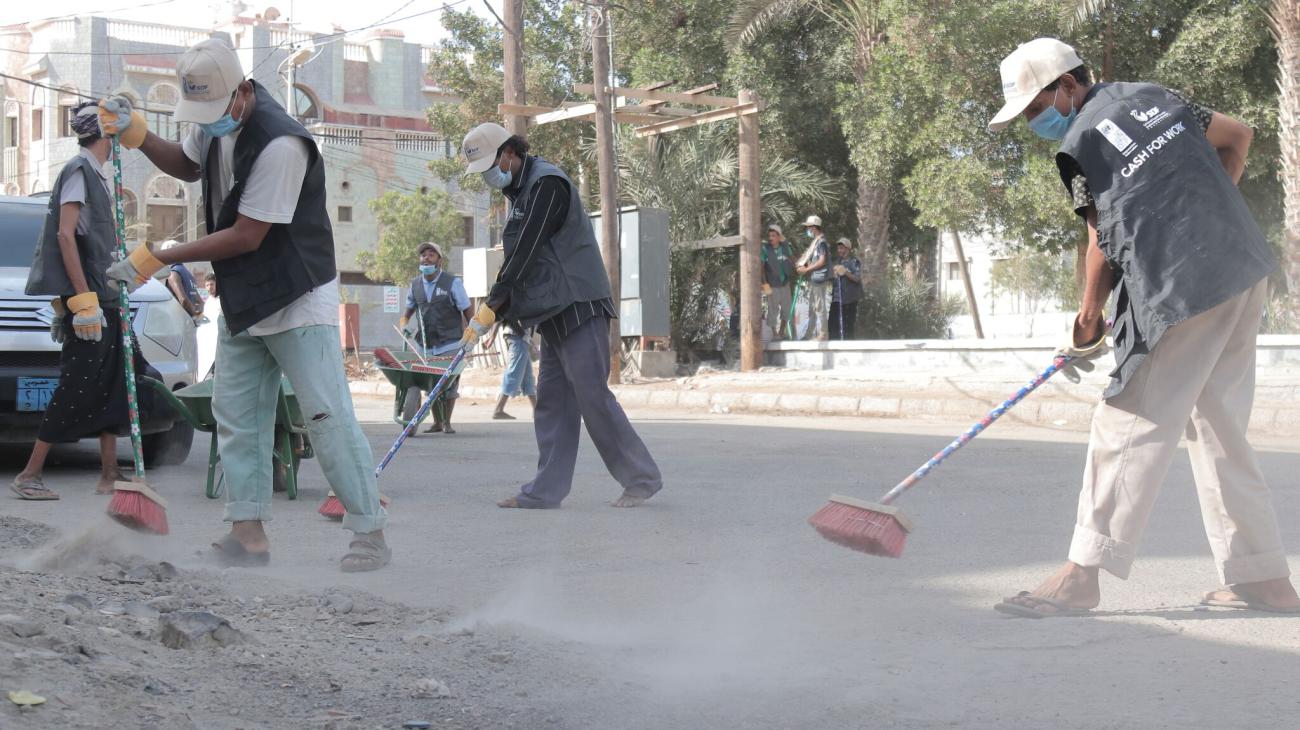In the absence of national revenue and funds for local service delivery, collective action is critical for improving living conditions, including public health.
Hodeidah – Coinciding with the holy month of Ramadan, communities throughout Hodeidah are participating in a Clean-Up initiative – collecting waste from streets and helping to restore “life as usual” in the port city. Organized in collaboration with the Sustainable Development Foundation (SDF) and the District Cleaning Fund (DCF), the UNDP activity is taking place from 20 May – 20 June 2019 and is the first of its kind in the area.
While Hodeidah city generates 350 tonnes of solid waste every day, conflict has impeded basic services – including waste collection. Coverage by the DCF has been reduced to just 50 per cent; and the only city waste disposal site is roughly 17 kilometres from the city centre. As a consequence, waste has accumulated in the city, compromising public health and contaminating the water supply. In addition, the possibility of a cholera outbreak remains a lingering threat – particularly as the country enters the rainy season and risk is at its greatest.
Four thousand citizens of the Mina, Hali and Hawak districts are participating in the Clean-Up Initiative. Participants will be divided into groups where they will be a part of the team that does the clean-up, receive training on how to reduce and properly dispose of the waste, and beautify the area with plants and shrubs. In total, is estimated that more than 110,000 people will benefit from the exercise, which will result in cleaner streets and help to reduce exposure to disease.
The initiative is also a way for communities to support the DCF. Currently, the fund is made up of just 660 casual labourers and lacks functional equipment to facilitate collection. In addition to the help the DCF is receiving from their communities, UNDP will donate fuel and spare vehicle for the repair damaged vehicles, to be used for transport and removal of waste – well beyond the Ramadan Clean-Up exercise.
In the absence of national revenue and funds for local service delivery, collective action is critical for improving living conditions, protecting public health, and reducing the risk of disease. More broadly, it is a way for the community to take ownership and “bring back normal life.”
The Ramadan Clean-Up will serve as a pilot and may be followed by other similar initiatives in the future.




